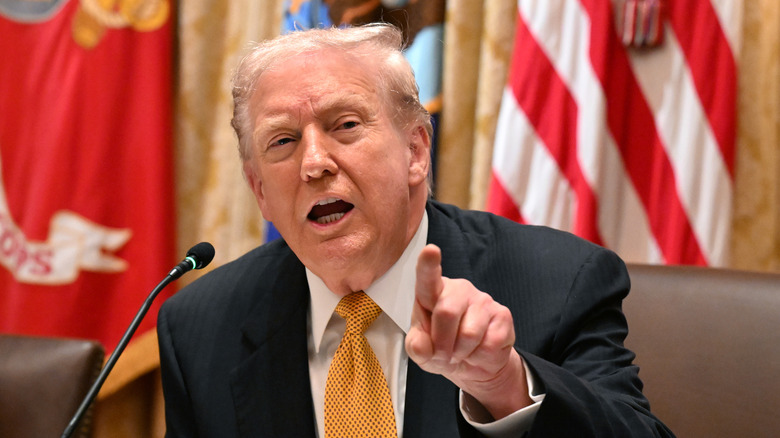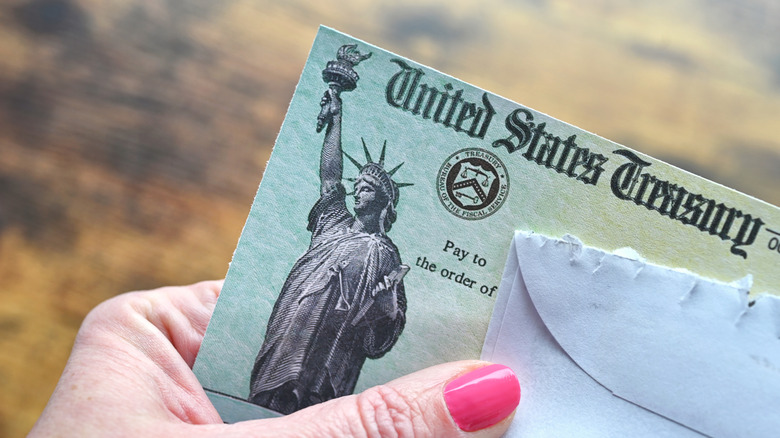Trump Announces $2,000 Checks For Americans — Here's Who Could Get Them
While tariffs have been a significant area of focus for the Trump administration — with levied rates now ranging from 10% to 100% across different countries and goods — they have also been controversial. Economists have argued that the tariffs do more harm than good. Meanwhile, consumers, who are ultimately paying for the tariffs, complain about bearing the cost, which equates to a household income loss of roughly $2,400 a year according to Yale Budget Lab.
On the other hand, the president's administration argues that the tariffs will improve the economy by reducing the trade deficit and addressing injustices in global trade. Data from the U.S. Department of the Treasury supports some of those claims, showing total revenue from customs duties worth $195 billion as of September 2025. That's a whopping 250% increase from the past fiscal year.
Now, it looks like that revenue may trickle down to the average citizen, with Trump announcing plans to give out tariff checks to all non-high-income-earning Americans from the revenue generated by the tariffs. The proposal was publicized on Sunday, November 9, in a Truth Social post, where the president announced dividends worth at least $2,000 per person. In the same post, the president mentioned plans to divert some of the revenue towards paying off the country's debt.
Who can get the $2,000 tariff rebate checks?
The proposed tariff checks are meant for most Americans, although Trump's Truth Social announcement notably excludes high income earners. The White House and the Department of the Treasury have yet to announce any specific figures as to what the high income threshold will be.
However, the Vice President of Federal Tax Policy at the Tax Foundation, Erica York, put pen to paper to work out some possible details. According to calculations she shared on X, if high income was considered to be $100,000 annually, over 150 million Americans would be able to receive the dividend. The cost to the government, on the other hand, is a different story. Her calculations put it at $300 billion, while other estimates place it lower at $240 billion, distributed among 120 million people.
When asked about the proposal, Secretary of the Treasury Scott Bessent told ABC News that he hasn't yet worked out the details with the president (via The Hill). But he explained that the tariff dividends may not be issued by the way of regular stimulus checks mailed to doorsteps and may instead come through the tax code, in the form of deductibles or tax cuts on items like overtime and Social Security.

